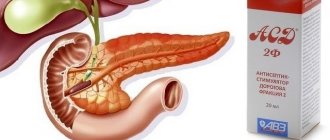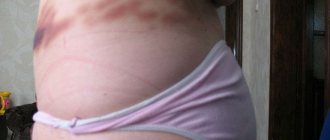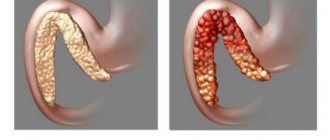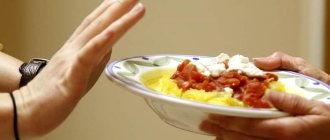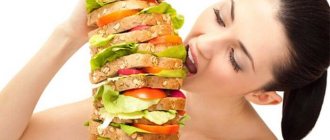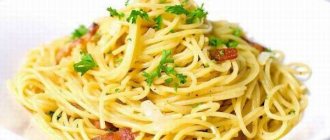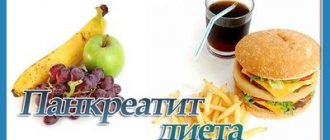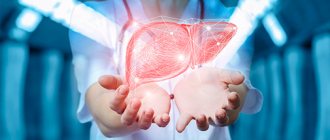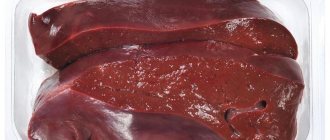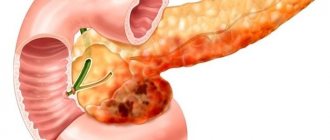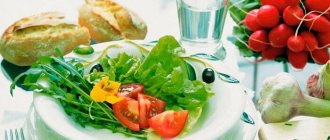The pancreas produces various secretions and enzymes that aid digestion. Any disease of this organ requires diet. A particularly strict diet is necessary for patients who have been diagnosed with a malignant tumor of the pancreas.
In case of oncology, proper nutrition helps reduce the load on this organ, and also replenishes the lack of vitamins and proteins in the body, which allows the body to more actively fight the disease and more easily cope with the consequences of chemotherapy.
General Diet Tips and Guidelines for Pancreatic Cancer
A set of rules that a person with pancreatic cancer adheres to helps reduce the severity of symptoms and adverse reactions after the measures taken. Thanks to the diet, you can reduce or even completely eliminate such deviations in health as nausea, systematic vomiting, poor appetite, and gastric disorders.
The fundamental rule of nutrition for pancreatic cancer is to completely avoid fatty foods. This is due to the fact that it is fats (in particular, animals) that place the greatest burden on the pancreas, stimulating the production of pancreatic secretions. Avoidance of fatty foods is extremely necessary for pancreatic cancer accompanied by metastasis to the liver.
Reviews and results
This dietary table is complete in protein content, however, the patient’s condition requires significant restriction of fats and simple carbohydrates, and strict adherence to the diet. Unfortunately, patients with this diagnosis are forced to constantly eat this way, since expanding the diet often causes deterioration. A light and most gentle diet does not increase pain, does not cause stomach discomfort or bloating.
- “...My father has this diagnosis. He was prescribed chemotherapy (Gemzar with cisplatin) because he had metastases to the liver. If you're lucky, remission may last a year. 9 months have passed, all this time I have been worried about poor appetite and sometimes pain. Of course, he is on a diet (steamed, mashed and tasteless food, not familiar to a healthy person), and he eats without pleasure. True, after such food there is no bitterness or heartburn, and the stomach does not swell. To ensure that food is digested well, he drinks Creon. The stool is normal and regular. We are happy with this too. Of course, weakness worries him, but he walks around the house and takes care of himself. There is nowhere to go”;
- “...My grandmother has pancreatic cancer. The pain is very strong. We inject analgesics every 3 hours (tramadol + analgin or ketorol + analgin). She is of course very heavy, swelling has appeared on her legs and is rising higher. Of course, he eats very, very poorly, which is why he has problems with stool. Beetroot and prunes help a little with constipation. If there is no bowel movement for 3 days, we do an enema. We prepare everything steamed and boiled for her, but, in my opinion, she doesn’t care what to eat, since she has no appetite”;
- “... My father was diagnosed with stage 3 pancreatic cancer. He underwent chemotherapy and lived for 1 year after that. Until recently, he ate and went to the toilet on his own. They prepared light mashed dishes, ate porridge, soups, fish and steamed cutlets. The diet worked itself out - he couldn’t eat anything else, as it was getting worse, and he had no appetite. By night the pain intensified. They eased the torment and suffering with injections (I learned to do it myself).”
Other Important Tips
• Drink plenty of water or other liquid (at least 2.5 liters daily). It is recommended to give preference to purified water, green tea, herbal infusions, freshly squeezed juices, and low-fat milk. • Forget about foods that are cooked in a frying pan. • Use individual foods and dishes without a pronounced odor, because in people with the oncology in question, sensitivity to foods with excessive odorous properties increases. • The food consumed should be warm (it is better to abstain from cold and hot foods). • Before and after meals, you should rinse your mouth with a weak soda solution. • It is best to use cutlery made of wood during meals, because with such a pathology a feeling of metal in the mouth may occur. • It is recommended to replace such popular seasonings as salt with mint, ginger, and thyme. • It is better to avoid products that have a long shelf life. It is also recommended to eat only foods whose ingredients you know well. • Eating should be systematic and relatively frequent (every two and a half hours). • Diet for pancreatic cancer should be satisfying. It must contain the entire complex of necessary nutritional components. • You need to eat at least 2 servings of fruits and vegetables every day (lightly cooked vegetables are recommended).
The norm of protein foods, for example, red meat, should be reduced; It is recommended to replace this type of meat product with dietary analogues. When consuming dairy products, you need to pay attention to their fat content. Food of plant origin must be grated. It is recommended to steam vegetables. It is recommended to boil food products in the form of cereals. It is believed that the best food for the cancer in question is puree soup.
How to deal with diarrhea
Diarrhea is associated with the secretion of water into the intestinal lumen under the influence of drugs. Medicines will help cope with diarrhea itself. The goal of nutrition is to prevent dehydration. You need to drink at least 2 liters of liquid daily. With long-term diarrhea, you lose not only water, but also electrolytes, so it is better to buy an oral rehydration solution at the pharmacy. This is a powder that is diluted in a large volume of water and consumed orally to restore water and electrolyte balance against the background of diarrhea.
Another mechanism of diarrhea is increased intestinal motility. If possible, you should avoid irritating him. To do this, do not eat too hard (raw vegetables, seeds), hot or cold foods. By the time the bolus of food reaches the intestines, its temperature will be close to body temperature. However, irritation of the upper digestive tract also reflexively affects intestinal tone.
Other recommendations:
- Against the background of diarrhea, it is undesirable to eat too fatty foods. It stimulates the release of bile. In turn, bile acids stimulate the intestines.
- Do not drink coffee and strong tea - these drinks contain caffeine and theine, which have pharmacological properties. Their effects include intestinal stimulation.
- Don't eat too much spice - it causes chemical irritation to the intestinal wall.
Take a course of chemotherapy with original drugs
- Remote consultation
- We will select the best treatment for you
Call me back!
With the right diet you can
• improve well-being during the acute stages of cancer; • slow down weight loss caused by chemotherapy.
In the presence of oncology, digestive abnormalities may be present, regardless of diet. Such deviations are especially often detected in cases of pancreatic cancer at the 4th stage of progression. These defects lead to severe exhaustion. In such situations, in addition to diet, experts prescribe special digestive enzymes and supplements that improve the absorption of nutrients. In the most severe cases, parenteral nutrition is prescribed, in which nutritional components are administered intravenously. When the cancer focus is localized in the endocrine region of the gland (where insulin is produced), a deviation in the insulin balance occurs. In such situations, a diet typical for diabetics is prescribed. With this diet, the emphasis is on foods that have minimal impact on glucose levels.
Why adjust your diet?
Nutrition cannot change the effectiveness of cancer. With the right set of products, the tumor will not regress faster, and the doses of chemotherapy will not become lower. And yet, a person’s diet during this period is very important, as it helps maintain health and improve well-being.
Goals of dietary pattern correction:
- maintaining normal weight;
- reducing the risk of side effects, including severe ones, which become a reason for suspending, canceling chemotherapy or reducing drug dosages;
- improved tolerability of therapy and improved quality of life;
- preventing deficiencies of specific nutrients that are at increased risk during chemotherapy or that may be particularly severe during cancer treatment.
Nutrition indirectly affects the effectiveness of cancer treatment. With proper nutrition, a person's risk of severe side effects is reduced. As a result, the likelihood of correction or cancellation of chemotherapy is lower.
The postoperative diet also has its own characteristics.
• food is given in small portions, because its excess can provoke a certain discomfort (even vomiting); • the diet should include foods with vegetable protein (cheeses, soybeans); • a certain group of patients are prescribed products that fall into the category of nutrihydrics - they are quite filling and contain an optimal concentration of vitamins; • It is recommended to grind products using a blender. In addition, patients must fill out their dietary diary, because the daily nutritional intake is individual. Thanks to successive trials, you can choose the appropriate diet.
Chemotherapy treatment at Yusupov Hospital
Without chemotherapy, oncology treatment is possible only at an early stage and with a favorable prognosis. In other cases, chemotherapy is one of the main methods of destroying cancer cells.
At the Yusupov Hospital, cancer treatment is carried out by oncologists-chemotherapists of the highest category with many years of experience. The clinic provides conservative and surgical treatment of cancer, chemotherapy, targeted therapy, immunotherapy and other methods of fighting cancer.
Doctors at the Yusupov Hospital support patients throughout their treatment. The clinic provides rehabilitation of cancer patients, palliative and symptomatic treatment of oncology. Patients undergoing treatment in a hospital receive balanced meals four times a day (the service is included in the price).
More information about chemotherapy and other cancer treatments as a service can be found on this page.
List of useful products
This list is quite large. This includes: • dietary meat products (poultry, rabbit); • low-fat fish; • dairy products (low-fat cottage cheese, kefir); • vegetables (in addition to those that provoke excessive gas formation); • fruits and berries (apples, pomegranates, watermelons, melons); • juices, with the exception of products with a high content of fruit acids (we are talking about orange and grapefruit juices).
The food consumed must be fresh and of the best quality. Vegetables and fruits must be free of chemical impurities, because... they can stimulate the formation of cancer tumors.
How to cope with weight loss
Many people lose weight during chemotherapy. It is important to prevent severe exhaustion. Preference should be given to foods with a high calorie content: high in fat, high in sugar.
Tips to help increase your calorie intake:
- Buy dairy and other high-fat products.
- Consume baked goods regularly.
- Drink liquids that are high in calories, such as sweet fruit juices and hot chocolate.
- Add more sugar, butter and vegetable oil to dishes that you prepare yourself.
- Eat these dishes with bread.
- Dress salads with high-calorie sauces.
- Carry energy bars with you.
- Always have a snack on hand - not only at home, but also at work or on a walk.
Products that are best avoided
Nutrition for pancreatic cancer has a number of restrictions. The list of products whose consumption is extremely undesirable includes:
• fried foods, as well as foods with excessive fat content; • salted and pickled food products; • all kinds of preservatives; • certain fruits that stimulate excessive gas formation in the body (grapes, pears); • a number of vegetable crops (radish, beans, cabbage); • vegetable crops that have a strong taste or strong smell (garlic, onions); • fresh bread made from the highest quality flour; • boiled eggs; • smoked food products; • all kinds of sweets (we are talking about sweets, sweet pastries, chocolate); • various types of fast food (hot dogs, burgers); • any types of mushrooms; • milk, sour cream, cream with high fat content; • cold food products (both main and desserts); • carbonated drinks; • coffee; • alcoholic products (any strength).
In addition, you should forget about very hot food (it is recommended to eat food whose temperature is 37 degrees). The consumption of vegetable oils will have to be limited.
How to cope with pain
Some drugs cause inflammation of the mucous membranes, and sometimes erosions form on them. If the mucous membrane of the oral cavity, pharynx, esophagus, and stomach is affected, then eating becomes painful.
During this period, a gentle diet is used, which:
- consists of soft foods that require little or no chewing;
- excludes solid foods that injure mucous membranes, spicy foods, salt, aromatic herbs, too cold or hot foods.
Eating food primarily in the form of purees is called a mechanically gentle diet. It is very simple to provide it: all you need is a blender. With its help, you can grind almost any food to turn it into a puree. To use a blender less often, eat soft foods with a uniform consistency: liquid porridge, mashed potatoes, fruit jelly, yogurt, etc.
